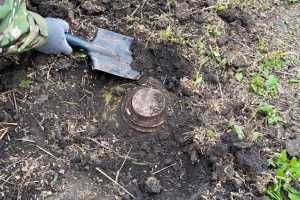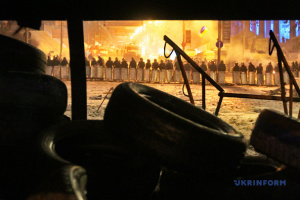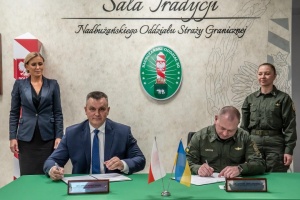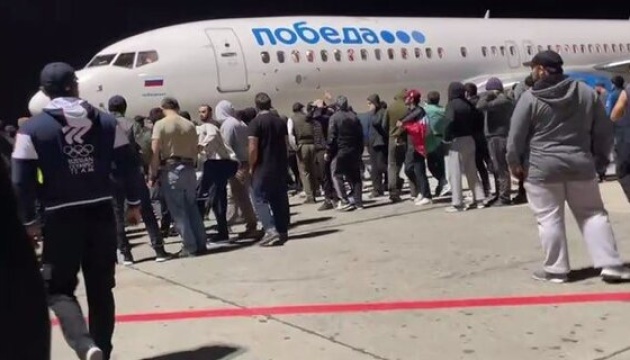
History proves it: Russia is birthplace of Jewish pogrom
Pogrom. This Russian word has entered the languages of the world without translation, as "satellite" once did. It dates back to the infamous Jewish pogroms of the nineteenth and early twentieth centuries in the Russian Empire. Why did the "Jewish pogrom" carried out by the Russian state from empire to federation become a "classic" of terror on ethnic grounds? Because, by inspiring "popular anger," the state shamelessly pursued its own interests, trying to keep a low profile.
On this basis, by the way, the persecution of Spanish Jews in the fifteenth century, which was openly initiated by Queen Isabella, was not a pogrom but state policy. This has nothing to do with the riots in Makhachkala. It was a classic example of an organized Jewish pogrom, the "letting off" of steam in an overheated cauldron of the masses. And there is no doubt that there is much to "let off" in today's Russia, and as soon as possible. The latent irritation with the failed and criminal war in Ukraine alone is worth a lot...
Why is it that this pogrom was inspired and supported by the authorities? Because in Russia, even single pickets, if the authorities do not like them, are instantly and harshly stopped by the police and special services! Attempts to organize unauthorized rallies are suppressed on the approach to the planned venues. And here, the rioters had no problems. It is impossible to imagine that in a traditionally problematic and explosive region such as the North Caucasus, it would be possible to seize an airport without the knowledge and support of security forces.
Anti-Semitism is one of the foundations of Russian identity
Regimes, leaders, and ideological doctrines may change in Russia. Two lines of continuity that modern civilization has long rejected remain unchanged: the desire to destroy any otherness and "endocrinological" (i.e., at the level of the endocrine glands) anti-Semitism.
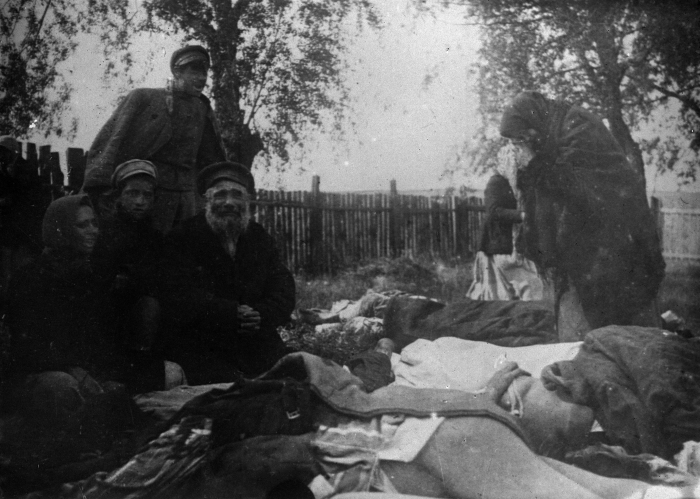
Russia is historically a country where Jews had no place for hundreds of years. Their daily life, education, and economic activity were restricted in every way. Until the partition of the Polish state, Jews were forbidden to live in the Moscow Kingdom and later in the Russian Empire. Tsar Ivan the Terrible, for example, forbade even Jewish merchants to enter the territory of the Moscow Kingdom. The troops of Tsar Alexei of the subsequent Romanov dynasty in the captured Belarusian and Ukrainian lands expelled Jewish residents from their homes to new borders.
Both Catherine II's predecessors and predecessors, and she herself, pursued a pronounced anti-Semitic policy. Of course, this was justified by the alleged guilt of the Jews in the murder of Christ, falsified testimony from a series of "bloody slanders," and numerous schismatic religious movements in the Russian Empire that did not recognize official Orthodoxy. The economic factor also played a huge role; Jewish traders and bankers were in considerable competition with their Moscow and St. Petersburg counterparts, who were accustomed to a monopoly position in domestic markets.
After the partition of Poland, the Russian Empire acquired many lands inhabited by Jews, whose rights were immediately severely restricted by the so-called "settlement line" and numerous infringements on their economic and social rights, education, and so on. Until the end of the Russian Empire, Jews did not have equal rights with other subjects of the Russian tsar. This explains the active participation of Jews in revolutionary organizations and their mass emigration outside the "prison of nations." The tsarist authorities, in turn, actively oppressed Jews, inspiring provocations such as the Bailis Affair or the fabrication of the infamous anti-Semitic forgery "Protocols of the Elders of Zion" by the Police Department. And, of course, the Jewish pogrom is the main and favorite tool of the hateful empire.
Soviet anti-Semitism, the usual kind
The February Revolution of 1917 abolished restrictions, but soon the Bolshevik coup led to the identification of Jews with the new government, which, instead of imperial national oppression, brought the Red Terror and the deprivation of all human rights. The people, of course, "appointed" Jews to be responsible for this, many of whom enthusiastically and sincerely undertook to build a new world "without a settlement line" and total national humiliation.
However, the Jews' love affair with the communist regime did not last long. Stalin's struggle for power with the "old guard" of Bolsheviks, many of whom were ethnic Jews, led to an initially covert, and after the war, an open anti-Semitic campaign in the USSR. Karl Radek, one of the repressed Bolshevik leaders, joked that Moses and Stalin were similar in that the former led the Jews out of Egypt and the latter led them out of the Politburo.
Another motive for the persecution of Jews was the idea of creating their own state on the ancient historical lands of Palestine, which was popular among the Jewish population. Zionists, supporters of Jewish emigration, were a significant obstacle for ideological communists who professed insane ideas of the final merger of nations, the creation of a world Soviet republic, and other nonsense.
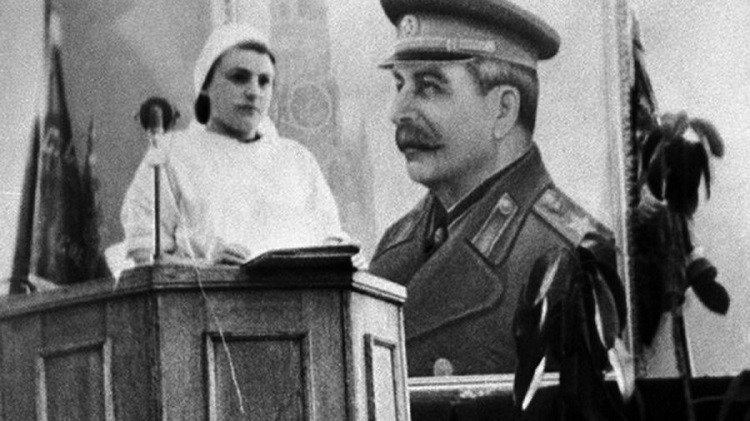
After the Second World War, Jews who had not yet recovered from the realization that most of their brothers and sisters had been brutally murdered by the Nazis began to be persecuted, accused of rebellion against the Soviet government and intentions to assassinate the communist leadership. The shameful "doctors' case," the shooting and imprisonment of members of the Soviet Jewish Anti-Fascist Committee, preparations for public executions in Moscow, and the deportation of all Soviet Jews to the Far East are not so distant in the history of Jews in the Soviet Union. Only Stalin's death prevented the executions and deportations, but this did not change the general attitude toward anti-Semitism, which became state policy in the USSR, as it had been in Spain under Queen Isabella. Percentage standards for higher education were again unofficially introduced for Jews, they were not hired, career opportunities were limited, and many ugly Jewish jokes circulated in the country.
Thus, the Israeli Russian-language poet Ihor Huberman, known for his aptly named "Hariks," wrote about Jews and the failed assassination attempt on Lenin by the Socialist Revolutionary Fanny Kaplan:
There is a judge for everything for the Jews.
For liveliness. For intelligence. For stooping.
For the fact that a Jew shot at the leader.
For the fact that she missed.
The example of the State of Israel, which, although not distinguished by a special level of prosperity at the time, was a free democratic state, was too painful for the leaders of the USSR. The euphemism "Zionists" was invented for Soviet Jews, and Zionism itself was understood not as a desire to reunite with their people in their State of Israel, but as a hostile attitude toward the USSR. An additional factor that contributed to the anti-Semitic attitude of the Soviet leadership was the fact that Israel had crushed the troops of the Soviet Union's Arab allies in two wars-the Six-Day War and the Yom Kippur War.
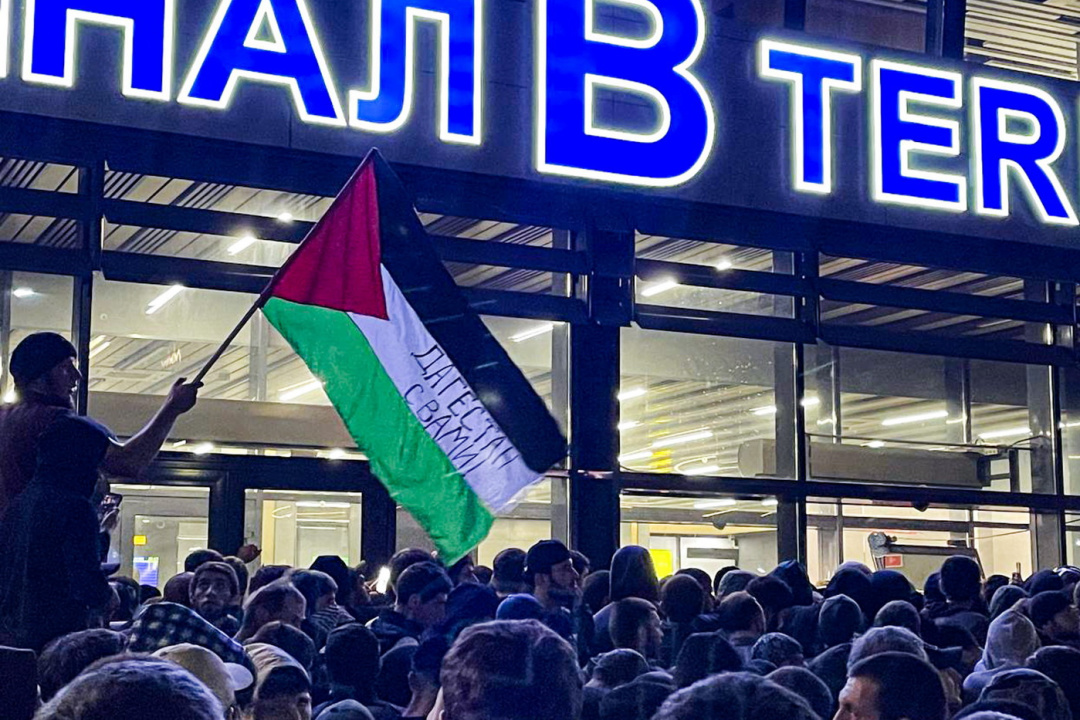
In Russia's "prison of peoples," peoples should be periodically distracted
The North Caucasus was obviously chosen as the location for the "pogrom of the twenty-first century" for a reason. Dagestan and the peoples who inhabit it are an accumulator of protest sentiment against the current Russian government. This is due to many factors, the most important of which are the extremely low standard of living, harassment on religious grounds, cultural and linguistic orientation, and permanent repression of activists of religious and liberation groups. Dagestan is inhabited by hundreds of peoples, and it was the longest region in the Caucasus, along with Chechnya, to resist Russian expansion 150-200 years ago. The last major uprising in Dagestan against the tsarist regime and under religious slogans was only suppressed in 1878, with enormous efforts by the imperial army.
During the Chechen wars in the modern era, Dagestanis also provided assistance to the fighters for the independence of Ichkeria, and attempts were made in Dagestan itself to resist Russian troops. Directing discontent at imaginary enemies, who once again chose Jews, is an impossibly simple and effective move by the Russian special services, which are as enamored of dirty two-steps as their living or dead supreme ruler.
Of course, we can joke as much as we want about the fact that the Makhachkala pogrom took place even without the participation of Jews, but the day of October 29, 2023, was a turning point in the post-Soviet history of Russia as an allegedly "philosemitic state." The policy of the current Russian leadership, which declares its determination to revive the Russian Empire and the USSR, and the ongoing campaign to rehabilitate Stalinism and the tsarist regime, has quite logically led to an outbreak of brutal anti-Semitism.
But this is not only now. Even during the reign of Putin's predecessor, Boris Yeltsin, various neo-Nazi and anti-Semitic groups, such as the Russian National Unity, led by Alexander Barkashov, felt quite free in Russia. The xenophobic and anti-Semitic "Pamiat" Society, created during Gorbachev's perestroika, was also active.
From 2005 to 2021, "Russian Marches" took place on the streets of Russian cities, with the participation of numerous neo-Nazi organizations and the most prominent representatives of the Russian opposition. The last march was dispersed by the authorities on the eve of Putin's ultimatum to the West to withdraw NATO to the 1991 borders.
It was only a matter of time and tactics before the Russians switched from Ukrainians to Jews. The bloody massacre organized by Hamas militants and the obvious Russian trace in this worldwide crime caused Russia to first attempt to whitewash the crimes of Russian proxies in the Middle East. And then there was the natural pogrom, which was without casualties only because no Jews were found there.
To play on the contradictions between Muslims and Jews, to present the conflict in the Middle East as a religious war and thus divert the attention of Muslim residents of Russia from the ongoing degradation of Russia would be a good attempt, if not for several significant nuances.
First of all, since at least the time of Napoleon, who for the first time in European history equalized the rights of Jews with other citizens, state anti-Semitism has been considered a manifestation of savagery. In today's world, anti-Semites use the same disguise for the same reasons when they condemn Israel as a state, without touching on the ethnic component of the issue. But in the Makhachkala "under-pogrom," it was Jews who were the object of hatred.
Finally, after Moscow's open support for Hamas, against the backdrop of its friendship with Iran and its offer to mediate between the murderers from Gaza and Israel, the events in Dagestan are nothing more than outright blackmail of Jerusalem. The hint is more than transparent - today an angry mob is looking for Jews and does not find them, tomorrow it may find them...
The path to a civilized society always goes up. It is difficult to walk, but when this process is supported, when you are pulled up by the hand, and sometimes propped up and pushed from behind, it is quite possible to reach a level that is decent for a modern state. But when both the government and the people agree in a strange unity to fly downward, into the darkness of the Middle Ages and barbarism, even this does not require any effort. Russia, after the Dagestan events, has fallen down a whole flight of stairs, and soon the clay feet of this colossus will inevitably break, as has happened many times in history. It is time for the peoples of today's Russia to think about whether it is worth the risk of being buried under the rubble of the empire while continuing to be part of it.
Dmytro Redko, Kyiv
First photo: BAZA TG channel


